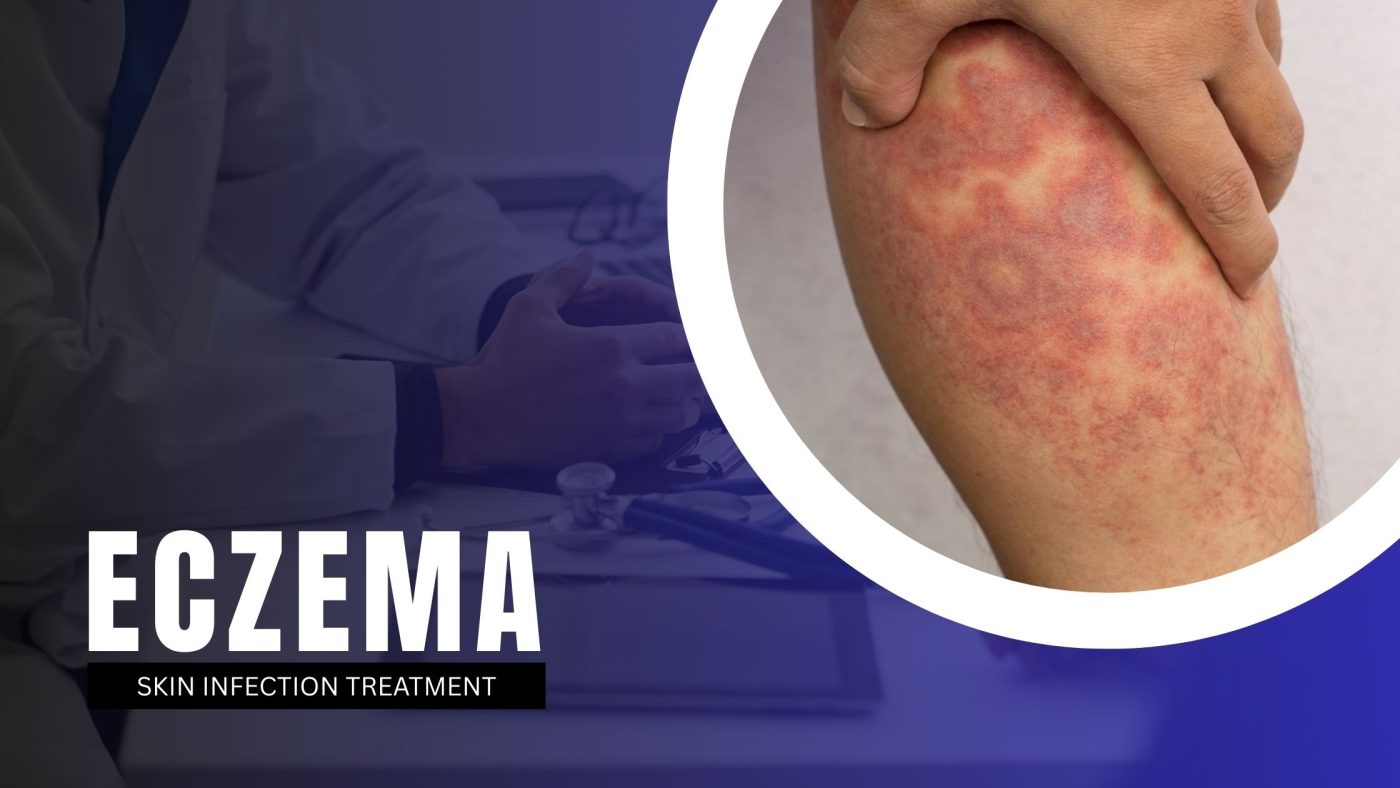No products in the cart.
HEALTH BLOGS BY FITBYNET
Eczema – Types, Symptoms, Causes, and Treatment
Eczema is a prevalent skin disease that can affect individuals of any age, leading to red, inflamed, and itchy patches on the skin. It may be a mild irritation or extremely severe inflammation that interferes with day-to-day living. Knowledge of The Symptoms of Eczema, the causes, forms, and effective treatments for managing this chronic disease can ensure proper management of this disease. Fitbynet provides sure-shot solutions in the form of medicines specifically for eczema treatment and expert advice for controlling skin infections.
What is Eczema?
Eczema, or atopic dermatitis, is a series of skin diseases that make the skin irritated or inflamed. It is not infectious, but it can be chronic, and in certain instances, it might result in infections of the skin if left untreated.
Types of Eczema
There are a number of various types of eczema, each having its own special features:
- Atopic Dermatitis
The most common form often occurs in people with a family history of allergies or asthma. It usually starts in childhood and can continue into adulthood.
- Contact Dermatitis
Triggered by contact with irritants or allergens like soaps, detergents, or chemicals.
- Dyshidrotic Eczema
Characterized by small, itchy blisters on the hands and feet. It’s often triggered by stress or allergies.
- Nummular Eczema
Appears as round, coin-sized patches on the skin, typically on arms and legs.
- Seborrheic Dermatitis
Affects oily zones such as the face and scalp, leading to patches of scaly red skin.
- Stasis Dermatitis
It is where there’s bad circulation in the legs, which makes the skin itchy and pigmented.
Symptoms of Eczema
The Symptoms of Eczema may change according to type and severity but usually include:
- Sensitive, dry skin
- Severe itching
- Inflamed, red skin
- Dark-colored spots
- Scaly, rough, or leathery texture
- Oozing or crusting
- Swelling
In severe cases, scratching the area can cause cracks and open sores, which may lead to skin infection.
Causes and Triggers
Eczema is usually caused by a combination of genetic and environmental factors. Some common triggers are:
- Harsh soaps and detergents
- Allergens (dust mites, pollen, pet dander)
- Stress and hormonal changes
- Sweat and heat
- Certain fabrics (such as wool or synthetic fibers)
- Food allergies (particularly in children)
- Weather changes
Avoidance of these triggers can prevent flare-ups and assist in maintaining long-term skin health.
Treatment for Skin Infection and Eczema
Treatment of eczema needs a holistic approach with skincare regimes, lifestyle changes, and drugs. At Fitbynet, we suggest the use of a combination of the following for efficient relief:
1. Moisturizers
Maintenance of hydration in the skin is vital to avoid dryness and itching.
2. Topical Corticosteroids
They diminish inflammation and are usually prescribed for flare-ups. A favorite one includes:
- Salivate MF Ointment: An active corticosteroid that reduces itching, inflammation, and redness. It is useful in the treatment of severe to moderate eczema symptoms.
3. Non-Steroidal Creams
These provide a milder solution for mild conditions:
- Nanoderm 5C Cream: A comforting cream that relieves and restores irritated skin. It can be used long-term without steroid side effects.
4. Combination Creams
These may contain antifungal and antibacterial components:
- HH Sone Cream: A general-purpose cream that is helpful when eczema is complicated by infection. It fights inflammation and prevents secondary infection.
Medicine for Treating Eczema
When over-the-counter remedies are not sufficient, prescription medicine to treat eczema is required. Based on severity, your dermatologist might prescribe:
- Topical steroids for inflammation
- Antihistamines to alleviate itching
- Antibiotics in the event of skin infections
- Immunosuppressants for chronic, severe eczema
- Phototherapy in resistant cases
It’s important to consult with professionals, like those at Fitbynet, to get the right diagnosis and treatment plan tailored to your skin condition.
Preventive Tips for Managing Eczema
- Use mild, fragrance-free soaps and detergents
- Moisturize immediately after bathing
- Avoid long, hot showers
- Wear breathable, cotton fabrics
- Manage stress with mindfulness or yoga
- Stay hydrated and eat a balanced diet
- Avoid known allergens or irritants
Why Choose Fitbynet for Eczema Care?
At Fitbynet, we recognize how difficult eczema is. Whether you experience occasional or chronic symptoms, our experts provide expert advice, diagnosis facilities, and treatment with medicines such as Salivate MF Ointment, Nanoderm 5C Cream, and HH Sone Cream.
We also conduct consultations for individuals experiencing skin infections, providing an all-around treatment of skin infection that treats the underlying eczema as well as the secondary bacterial infection.
Final Thoughts
While eczema might not be cured, it can be well controlled with proper care, medication, and lifestyle modification. Early detection of eczema symptoms and appropriate treatment of skin infection or inflammation are important in enhancing quality of life.
Fitbynet stands ready to assist you each and every step of the way. Contact us today to discuss the best medicine for eczema and allow your skin to start healing.

